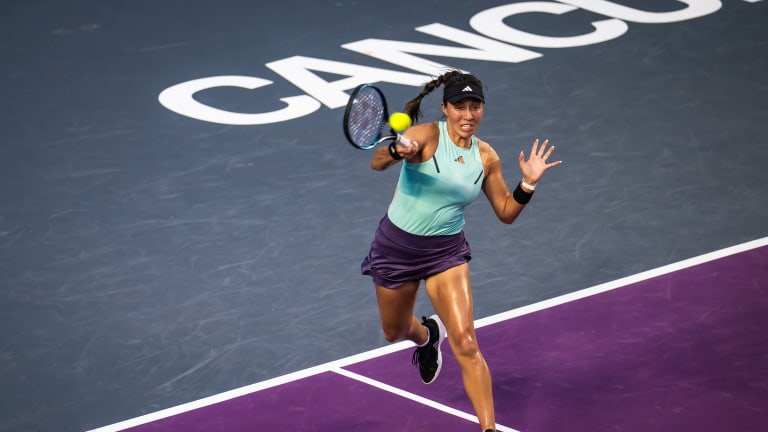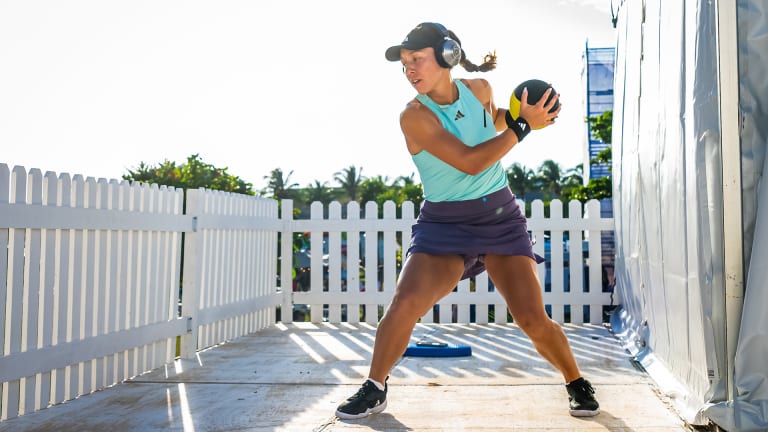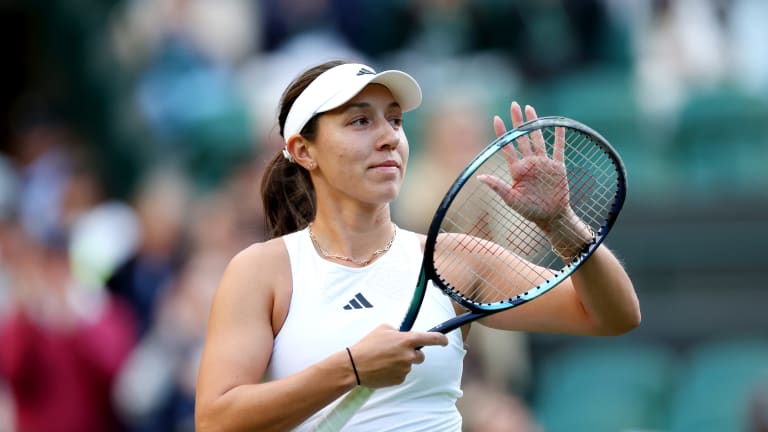WTA Finals
Jessica Pegula: Inching her way toward Grand Slam glory?
By Nov 02, 2023WTA Finals
How Coco Gauff pulled off a miracle marathon win over Zheng Qinwen in Riyadh
By Nov 09, 2024WTA Finals
Coco Gauff rallies against Zheng Qinwen for first WTA Finals title in Riyadh
By Nov 09, 2024WTA Finals
WTA Finals Preview: Coco Gauff, Zheng Qinwen face off for first year-end crown in Riyadh
By Nov 09, 2024WTA Finals
Coco Gauff solves Aryna Sabalenka for first final at WTA Finals, will face Zheng Qinwen for Riyadh title
By Nov 08, 2024WTA Finals
Zheng Qinwen holds off Barbora Krejcikova to reach WTA Finals final
By Nov 08, 2024WTA Finals
WTA Finals Preview: Aryna Sabalenka vs. Coco Gauff leads semifinal slate
By Nov 07, 2024WTA Finals
Defending champion Iga Swiatek eliminated from WTA Finals despite 2-1 record, win in last match
By Nov 07, 2024WTA Finals
Barbora Krejcikova surges into WTA Finals semis, defeats Coco Gauff, eliminates Iga Swiatek
By Nov 07, 2024WTA Finals
Into WTA Finals semifinals, Zheng Qinwen hopes to match Serena Williams' 2012 feat
By Nov 06, 2024WTA Finals
Jessica Pegula: Inching her way toward Grand Slam glory?
The final frontier in Pegula’s quest for a major lies in her mind—but a win at the ongoing WTA Finals would be a sign of great progress.
Published Nov 02, 2023
Advertising

It seems that Pegula, who has qualified for the semifinals of the WTA Finals, will start the upcoming year standing at the crossroads between the very good and the great.
© 2023 Robert Prange
Advertising
Advertising

“I don’t grunt, I’m not super physical, so I think that’s why it doesn’t seem like it… but I hit pretty hard!” Pegula told Tennis Channel after her victory over Sabalenka in Cancun.
© 2023 Robert Prange
Advertising
Advertising
Advertising

In 2023, Pegula became just the fifth American woman to reach the quarterfinals at all four majors in the past 25 years. But she remains without a victory in a Grand Slam elite eight.
© Getty Images